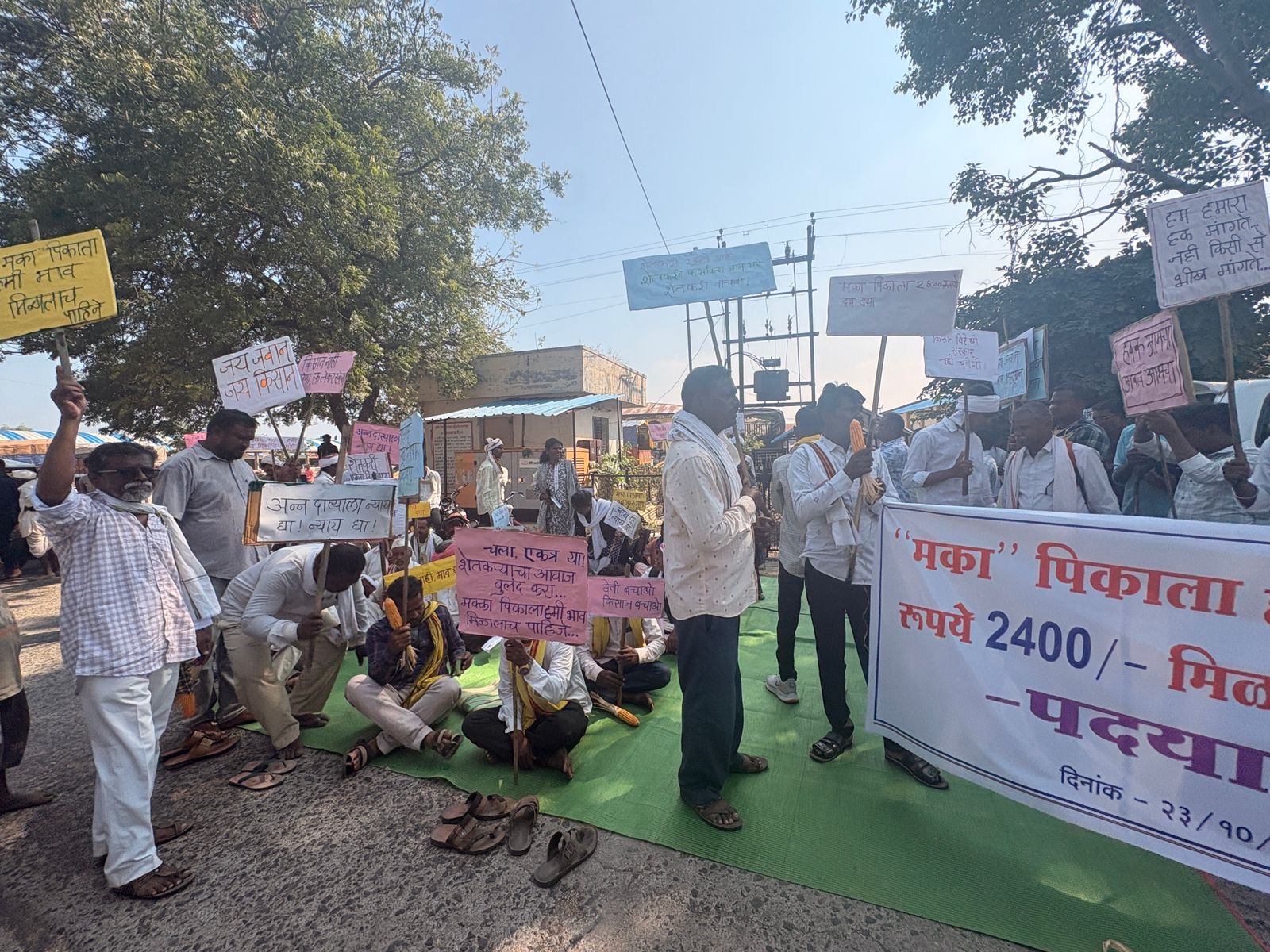Achalpur, October 23, 2025
Maize farmers from the remote Melghat region staged a protest at Achalpur APMC demanding procurement at Minimum Support Price, as their produce fetches only ₹800-₹1,200 per quintal against the government-declared MSP of ₹2,400.
The farmers, primarily from tribal communities in Melghat’s interior villages, are facing a systemic crisis where traders are offering prices barely one-third of MSP, citing excessive moisture content without proper testing.
The Moisture Testing Fiasco
Traders at Achalpur mandi have been systematically rejecting maize citing “too much moisture” without using calibrated equipment. When farmers finally managed to get a moisture testing device at the APMC yesterday, it was non-functional, leaving them with no way to verify quality claims used to justify the massive price cuts.
“They don’t even check, they just look and say the moisture is high. When we asked them to test properly, the machine wasn’t working,” said one of the farmer.
Diwali Spent Drying Crops, No Price Improvement
In a desperate attempt to meet quality standards, few farmers camped at the APMC premises for three consecutive days, spanning Diwali—to sun-dry their maize on the concrete apron. Despite this effort, traders continued offering the same distress prices.
“We thought if we dry it properly here, they can’t reject it. We spent Diwali away from our families, drying our crop for three days. Still, we’re being offered ₹800-₹1,000. The price is decided before we even arrive,” said farmers who participated in the drying exercise.
Melghat’s Unique Challenges
The crisis is compounded by Melghat’s extreme logistical isolation. The region, a tiger reserve spanning forested terrain in Amravati district, presents multiple vulnerabilities:
- Distance from markets: Villages are 40-80 km from Achalpur APMC, connected by poor roads
- No storage facilities: Farmers cannot make multiple trips; they must sell immediately after harvest
- Small landholdings: Most cultivate just 1-2 hectares, with limited bargaining power
- High transportation costs: Multiple trips to the mandi are financially prohibitive for smallholders
“We can’t keep coming back and forth from our villages. The distance is too much, the roads are bad, and we don’t have storage. We have to sell whatever price they offer,” another farmer reiterated.
MSP Without Procurement
The Achalpur situation exemplifies a nationwide pattern where maize farmers expanded cultivation by 12% this year to 9.5 million hectares, encouraged by the government’s MSP announcement of ₹2,400 per quintal. However, unlike wheat and paddy which are procured universally by Food Corporation of India at MSP, maize has zero institutional procurement.
The ₹2,400 MSP exists purely on paper—there is no government agency obligated to purchase maize at this price. Private buyers (feed mills, ethanol plants, traders) face no legal requirement to honor MSP, leaving farmers entirely at market mercy when supply exceeds demand.
Across India, maize prices have crashed this October with similar distress reported in Madhya Pradesh (₹1,200-₹1,400), Rajasthan (₹1,500-₹1,800), and Karnataka (₹2,000-₹2,100)—all significantly below MSP. Record production of 422 lakh tonnes combined with weak ethanol demand has created oversupply that private markets are exploiting.

